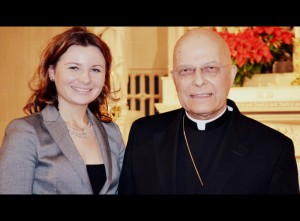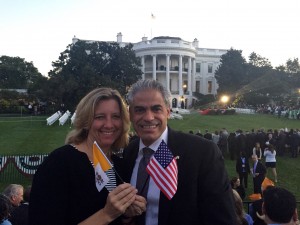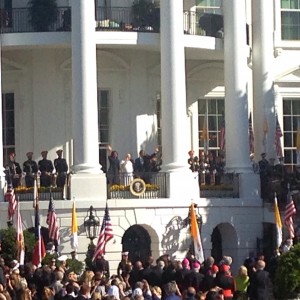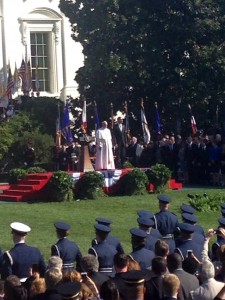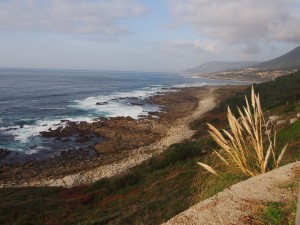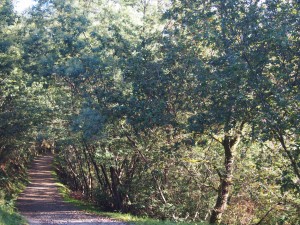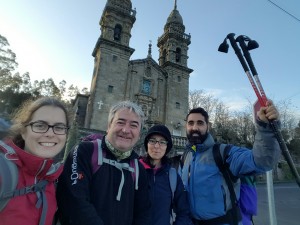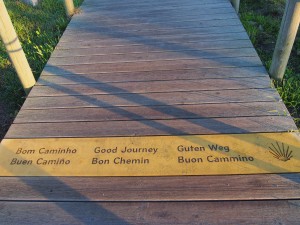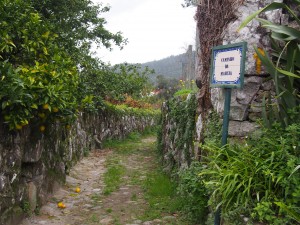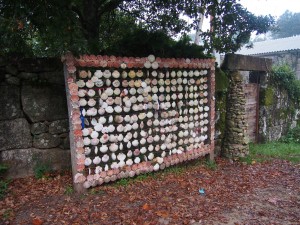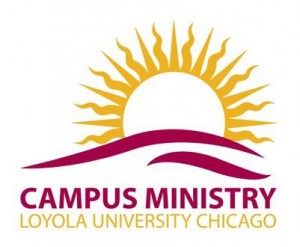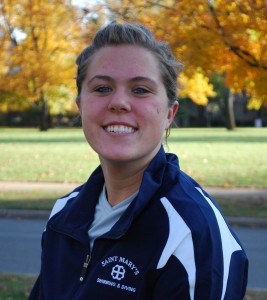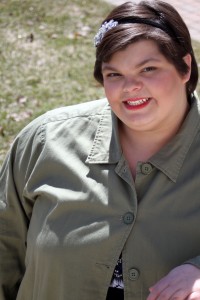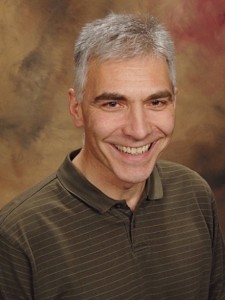While at IPS, Anna Dudek has taken advantage of some of the great things IPS has to offer to enhance education. Anna has learned a lot during her studies and shared with us some experiences, accomplishments and wisdom. We know you will succeed in your goal of helping young people “see the presence of God in their own lives.”
Hometown: I was born in Poland and for the past 10 years I have been living in Chicago.
What did your studies focus on at IPS?
In the Institute of Pastoral Studies (IPS), my studies focused on Master of Arts in Religious Education. I strongly believe that taking classes on campus gave me opportunities to have social interaction and instructor feedback available in traditional classrooms. Discussions and teamwork are a couple of benefits of learning through this format. Two years ago, it was a privilege to go to John Felice Rome Center as a part of Loyola’s 1st summer study abroad. Loyola’s campus is wonderful and I couldn’t miss the opportunity to go there last year as well. I highly recommend the John Felice Rome Center for a study abroad experience in Rome.
What has been your biggest accomplishment while at IPS?
“Contextual Education,” one of the courses offered at IPS, gave me the opportunity to initiate Advisory Board for Office for the New Evangelization in Archdiocese of Chicago. The Advisory Board exists to advise, assist, support and advocate activities designed to carry out the mission offered to parishes and those in their care (school, catechist, youth, young adults’ families and etc.).
What was your favorite class and why?
I cannot say which class was my favorite because IPS has good professors and each of the classes impacted my life. Christian Doctrine & Its History with Professor Peter Jones helped shape my understanding of Christian Theology from the first century to the present day, with special attention to Christology, the doctrine of the person and work of Jesus Christ. Thus, Foundations of Christian Spirituality with Fr. Steve Krupa S.J. gave a beautiful overview with special attention to current issues in the field of spirituality and Christian spirituality in our time. Yet, I can clearly identify with the class of New Testament in Rome. I can certainly say I had a most pleasurable time with our group of great friends and outstanding teachers: Professor Brian Schmisek, Professor Heidi Ann Russell and Fr. Steve Krupa S.J. I am very happy that I could take the course of the New Testament on the site where St. Peter was martyred and became the first Pope. As I look at my pilgrimage in Rome I discover that I could participate in the history of the Church. The frescoes that decorate the walls and the ceiling of Basilica present full reconstitution to the community of the Church. It’s amazing that I could visit the places where early Christians gave their lives for their faith. Morning Mass in the basement of St. Peter Basilica was an enormous spiritual experience for me.
Do you have any advice for future students?
Do not be afraid and take advantage of what IPS offers you. Loyola University prestige has the potential to be an excellent education. The IPS has excellent faculty and very good resources. My dream was to study abroad and IPS gave me this opportunity.
As a recent graduate, in what way will you go forth to “change the world?”
I think that many young Catholics experience Christ every day through Mass, prayer and in the community where they grow up. Albert Nolan in his book Jesus before Christianity points out that:
“Faith, like a mustard seed, is an apparently small and insignificant thing that can achieve impossibly great things.”
I feel excited that I can work with the young people. I want to support the young people and to help them discover deeper meanings of their faith. Together I hope they find the happiness of being Disciples of Christ. I believe many young people are looking for a real experience of God. They would like a religion that helps them know life with its joys and sufferings. Young people need to recognize the story of Jesus and the gospel message. Nolan also points out:
“The only power that can heal and save the world, the only power that can do the impossible, is the power of faith.”
As an Evangelization Associate in the office for the New Evangelization, I want to teach young people that “Everything is possible for God” (Mk 10:27).
We must open ourselves to authentic communication with God and take a serious look at the liturgy and the Bible. God always wants us to say something to others. I believe that my charisma will help to build a warm and evangelistic atmosphere that involves people in parish ministry.
Today, young people speak new languages and they have to experience the practical reality of building a faith community:
“Pray for one another (James 5:16);
Care for one another (1 Corinthians 12:24b-25);
Bear one another’s burdens (Galatians 6:2);
Spur one another toward love and good deeds (Hebrews 10:24).”
I want to help them to see the presence of God in their own lives. Like my parents who helped me see God in my life, I want to empower young people to participate fully in the celebration of the sacramental life of the Catholic Church. In the book The Difference God Makes: A Catholic Vision of Faith, Community, and Culture, Francis Cardinal George, O.M.I. clearly points out:
“Creating a culture that provides a more evangelically authentic environment for daily life in the United States is less a program with clergy defined stages than a movement of gradual growth. Cultural change is slow, but it can be steady if our purpose is clear and our nerves are strong. Evangelizers need a broad vision and strength for the long haul.”
Connect with Anna via Facebook.
Join the conversation by following @BrianSchmisek on Twitter and @LoyolaIPS on Instagram! Also, network with the Loyola Chicago IPS community on LinkedIn.
